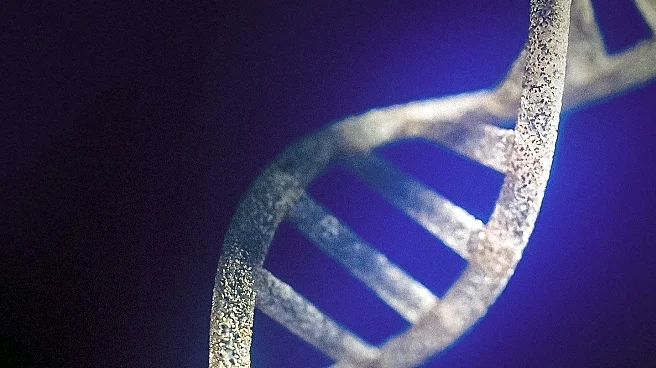What's Happening?
Sarepta Therapeutics has announced the FDA's approval of updated prescribing information for ELEVIDYS, a gene therapy for Duchenne muscular dystrophy (DMD). The updates include a boxed warning for acute
serious liver injury and acute liver failure, removal of the non-ambulatory indication, and expanded guidance for prescribers. The changes aim to enhance safety by recommending a modified corticosteroid regimen and increased monitoring post-infusion. ELEVIDYS is designed to address the genetic cause of DMD by delivering a transgene for micro-dystrophin production in skeletal muscle. The therapy is indicated for ambulatory patients aged four and older with confirmed DMD gene mutations.
Why It's Important?
The approval of updated prescribing information is crucial for ensuring patient safety and effective treatment of DMD, a rare and progressive disease. The boxed warning highlights the risks of liver injury, emphasizing the need for careful monitoring and management. By removing the non-ambulatory indication, Sarepta aims to address safety concerns and improve treatment outcomes. The updates reflect ongoing collaboration between Sarepta and the FDA to ensure that regulatory decisions prioritize patient welfare. This development is significant for the biotechnology industry, as it underscores the importance of precision genetic medicine in treating rare diseases.
What's Next?
Sarepta plans to commence a study of an enhanced sirolimus immunosuppressive regimen to address liver injury risks, with the goal of resuming dosing for non-ambulatory patients. The company will continue working closely with the FDA to ensure that all regulatory decisions are grounded in science and patient interests. Monitoring and reporting of adverse reactions will be crucial in refining treatment protocols and ensuring patient safety.
Beyond the Headlines
The updates raise broader questions about the ethical implications of gene therapy, particularly in terms of access and affordability. As gene therapies become more prevalent, discussions about healthcare equity and the potential for genetic modification will become increasingly important. Additionally, the focus on safety highlights the challenges of balancing innovation with patient protection in the biotechnology sector.









